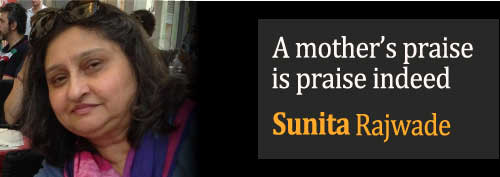When Old People Take Care Of Children
With so many couples working full time, many of today’s children are being brought up by their grandparents, either on a daily basis or at least for a part of the time. Parents are more comfortable with leaving the child in the care of their own parents. While it is important that the child is brought up by people who naturally love it, it is not always the case that the grandparents are the best care givers. Indeed, I have heard of cases where the child is actually ill-treated by its own grandparents who resent this intrusion into their lives. Not only are the children expected to conform to the rules of an old age home but the children are often ill-treated by over-strict grandparents.
The generation gap
Today’s grandparents are generally over 50 with most of them having their own children in their mid or late twenties and their own children getting married even later, the average age of grandparents is much higher than what it was in my own grandparents time – my husband’s grandmother became a grandmother at 36 when most women these days are becoming first time mothers!
Age and sensitivity
Many people feel that age is just a number and indeed grandparents of today are fitter and more active than grandparents a few generations ago. However, age has a way of making older people more set in their ways and often grandparents resent the intrusion that a child brings in their lives. Predictable middle age is taken over once again by the unpredictability of a young life, one that is curious, energetic and extremely demanding.
Older people not only prefer quiet but also prefer children to be perfectly obedient, running when told to run but children, especially toddlers, are not conducive to being perfect little people. They too want to run around and court danger – in fact they love getting a rise out of ‘teasing’ old grandpa or old grandma who has to scramble to her feet and run after the little one. Have you ever seen the pure glee on a little one’s face when he sees the complete despair and frustration of the older person when baby is running around, jumping on sofas or climbing up things that have been forbidden to him?
Along with the slowing down of faculties with old age, there is also very often a slowing down of energies and a tendency towards depression – especially when old people hear news about the death or illness of friends and relatives. This can send many an older person into days of moodiness and inward behaviour.
Children have a way of sensing things. I may have written this before but would like to repeat it – when my daughter was in Class 3 she suddenly started seeing double in class. The teacher asked me to get her eyes checked and when I took her to the ophthalmologist, he asked to speak to my husband and me together as her eyes were clinically all right. When the two of us were together, he asked if we had any conflict between us and when we both shook our heads; he wondered what was scaring her. Gentle probing from our end revealed that three of her classmates’ parents were getting divorced that summer and she thought that it would soon be her turn to hear this news from us. Of course our frequently raised voices and bickering did not go unnoticed by her and she felt it was only a matter of time before we told her that we were calling it quits.
This was not the first time I have noticed a child’s ability to pick up signals even when the situation doesn’t concern its parents. A teacher’s bad mood is immediately sensed by the tiniest child who will try and stay out of trouble lest it annoys the teacher. Similarly when the adults in the house are experiencing some ups and downs, children sense the friction and actually take sides, sticking closer to the caregiver than ever before. And it is not only conflict that children attune themselves too, they are also aware of sickness and show concern.
It becomes all the more important for older people who are looking after young children to be more aware of their moods and depressions. It is not only loud noises, yelling and screaming that children are scared of; they are equally frightened by withdrawn adults who remain silent or maintain a studied indifference to their surroundings.
My life has changed completely after my grandson has come into my life, not only because I look after him every day but also because he has taught me many lessons that otherwise would have gone unlearnt – the main one being that if you are incapable of looking after a child, please do not volunteer to take care of the baby. It is hard for a grandmother to say no to taking care of grandchildren but remember that you are shaping the personality of another human being.
Are you able to control your own moods and remain calm and equanimous through all the changing seasons and aches and pains that you may suffer from? Are you able to keep pace with the little one’s antics, roll with him on the floor, play horsey and out-shout him at the count of three? Are you capable of bringing yourself down to his level and indulging him the use of expensive equipment so as to satisfy his curiosity? Are you patient enough to do the same task again and again, allow him to mess around with his food, let him tear up your newspaper before you’ve had a chance to read it?
So are you ready to look after your grandchild?
Sadly, many older people think that looking after a grandchild especially a toddler is a breeze. Many of my friends look at me with envy when they see me squat effortlessly beside my two year old. Well, I tell them, indeed it is a blessing and a privilege to look after your grandchildren but only attempt it if-
- You are fit and fine and have the energy levels of a thirty-five year old,
- You have a sense of humour that accepts ridiculous situations
- You have the imagination of a five year old
- You have the patience of an old granny and of course
- You have genuine love for the child.
If not, it is far better to put the child in a well run and well recognized crèche rather than do him the injustice of placing him in a prison of love that restricts his natural instincts and makes him older than his time.
As a mother of two thirty-year old daughters and a grandmother of a nineteen week old grandson, Sunita Rajwade has been there and done that. A hands on mom, she has seen two girls grow successfully through babyhood, toddler hood, adolescence and adulthood; solving their maths problems and contributing to their angst of growing up with a mom “who doesn’t understand”. But now as a grandmother, she’s being appreciated for her “wisdom” and “understanding” and would like to share her experiences of this wonderful journey from motherhood to grand-motherhood.


